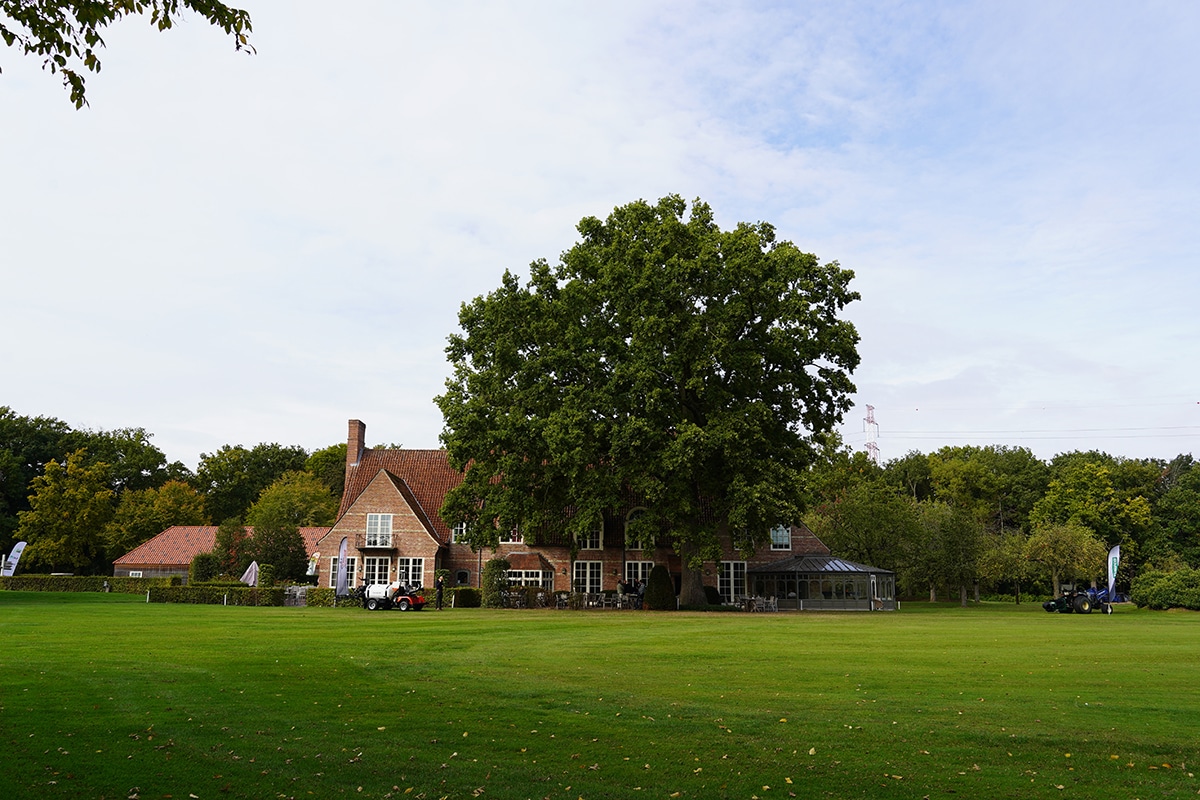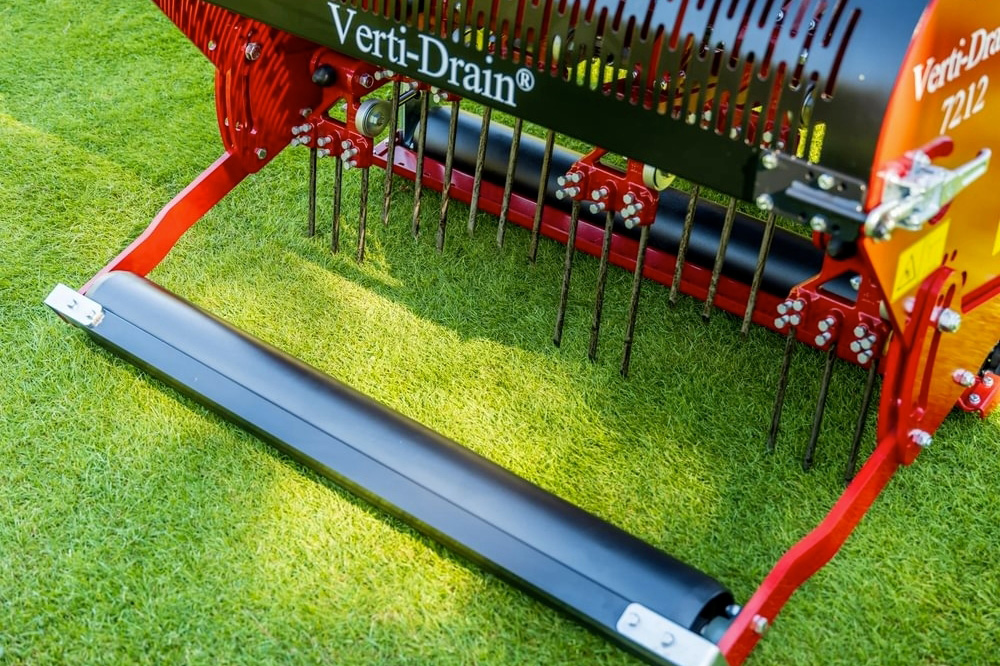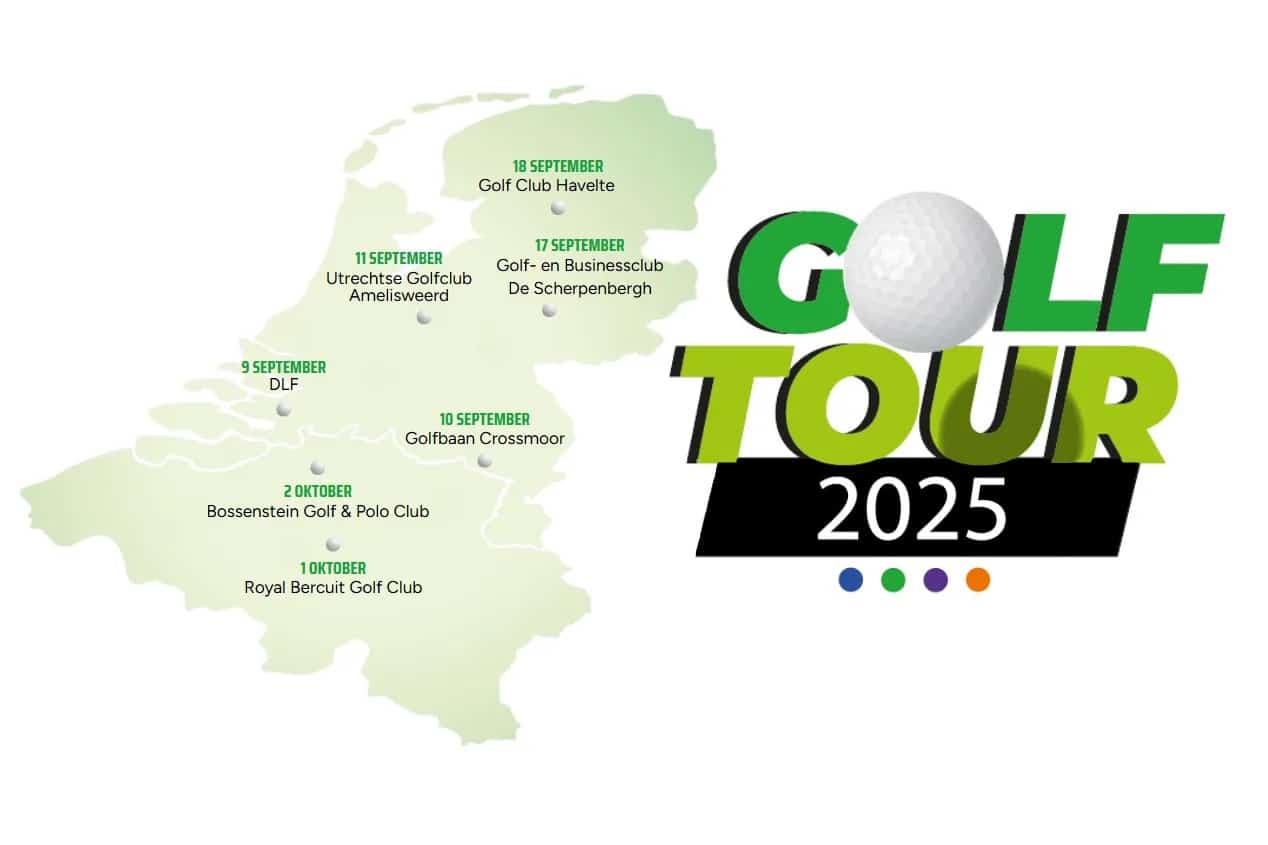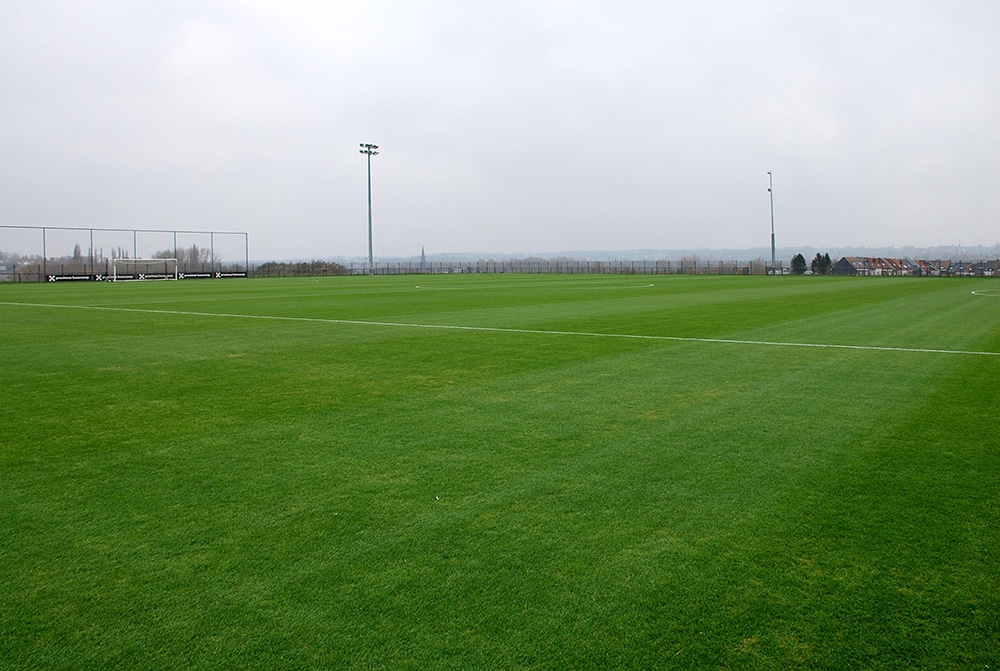
Stellar knowledge and keeping up with the times instead of guesswork
For year-round green turf
It is early December when we have an appointment in Tubize with Frédéric Cahay. The Head Groundsman of the training center for our national soccer teams talks at length about the essential - but sometimes somewhat underestimated - task of keeping the soccer fields in optimal condition so that they are playable all year round. Report of an instructive meeting 'in the field'.
Construction of the National Training Center in Tubize began in the early 2000s; it was officially inaugurated in 2016 after a tumultuous journey. And since the complex is fully operational, it has been used to its maximum potential. In addition to the Red Devils and Red Flames, foreign teams or Belgian teams regularly come to train there. In the Proximus Basecamp, they find the best conditions when the weather has made their own grounds unplayable. And Belgian umpires also come there to work on their fitness. The other side of the coin: intensive use requires intensive maintenance. An entire team of greenkeepers is therefore constantly working to keep the five grass fields, two artificial turf fields and the indoor field in the best possible condition throughout the year. Frédéric Cahay is Head Groundsman in Tubize, but also at Standard Liege: "Here in Tubize, the two oldest fields (pre-2014) have a different soil structure than the three other grass fields. We therefore have to match their maintenance to the difference in soil composition. Because teams can train on one field one day and another on another, we have to organize our activities so that all fields are technically equivalent at all times. To guarantee those homogeneous soil conditions, we perform measurements at least once a week with specific advanced equipment."
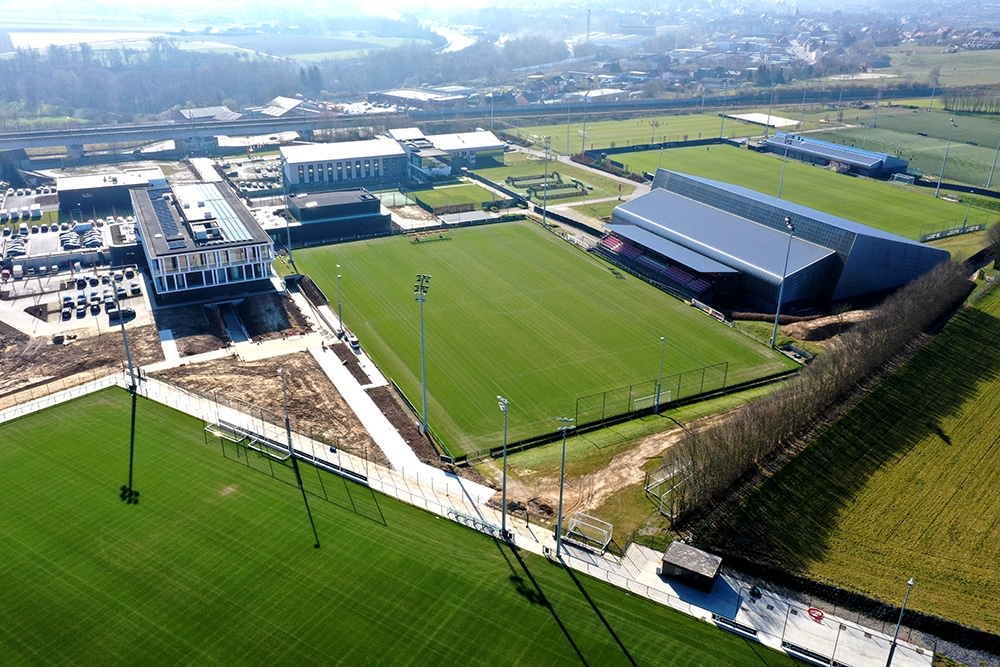
Put on edge by zero-fyto
With more than 22 years of experience and a degree in agronomy, Frédéric Cahay knows the world of grass sports fields inside out. He worked for some fifteen golf clubs in Belgium, France and even the Congo, before focusing more on the world of soccer.
"Long before the ban on the use of plant protection products, we were already working on the zero phytosanitary policy at the Naxhelet golf course. As pioneers, we learned by doing. Zero phyto has not made our work any easier. We have to look for solutions after the problems have occurred because there is no 100% effective curative treatment yet. So we intervene preventively.
While golf course turf is under constant pressure (it is cut shorter at 4 mm), soccer club turf is more manageable in practice. It comes down to mastering the basics, adjusting fertilization to changing soil conditions, finding the right doses of biostimulants, and adjusting irrigation correctly. That combination makes the soil more resilient. Of course, there is still a big difference between the findings from empirical research and the effective response of the soil. We therefore need well-supported studies to validate processes and explore new ideas."
Learning by sharing knowledge
Belgium is a forerunner in zero phyto. Of course, the suppliers of lawn maintenance products are the main source of knowledge. But they are certainly not the only ones. Frédéric Cahay: "We can't ignore the fact that there's all kinds of things on the market. That's why it's essential to maintain good relationships with your suppliers. And that you can rely on their expertise to determine the right criteria for selecting the most effective products."
"The contacts you make at trade fairs and the exchange of experiences with greenkeepers from foreign clubs are perhaps even more important. They give me the opportunity to discover new approaches. It is also thanks to these contacts that I am introduced to new processes that are already being used successfully by large soccer clubs that have access to larger budgets and more advanced research. These encounters are also often a trigger to take on new lines of thought."
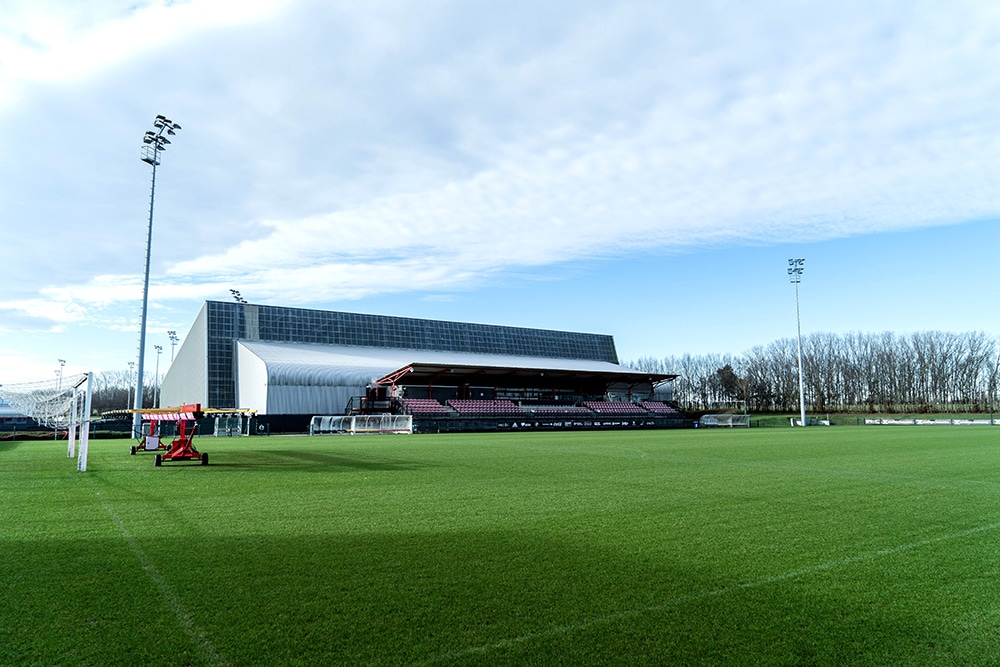
Efficient management is partly determined by internal support
To keep the fields playable throughout the year and guarantee optimal conditions, Frédéric Cahay can count on a passionate and highly versatile team of a dozen employees. There is also the support of the Devillers company, which makes its machinery available when needed.
Frédéric Cahay: "Our team is becoming increasingly professional and expanding its knowledge. We also receive excellent support from management. For example, a few years ago they approved my idea to introduce a robotic lawnmower and since then we have continued to work with the manufacturer to further develop the technology. In the near future, we will build a catch basin for rainwater and drainage water. The goal is to become completely autonomous by collecting and purifying water for "environmentally friendly" reuse in a closed loop. And for a year now we have been deploying a pump with nanobubbles. In this innovative technology, nanobubbles are injected with oxygen that remain in the water in high concentrations for months. In this way, the growth of microorganisms is stimulated and root development is promoted. In the area of safety, in collaboration with Raw Stadia, we are testing a technology that monitors the state of the pitches to ensure that the players' bodies are physically stressed as little as possible and the risk of injury is reduced."
The budgets in Tubize may not come close to those of the big international clubs, but the results are to be proud of. After all, at the beginning of December the fields are still looking beautiful. "A positive aspect of zero-fyto is that the groundsmen and greenkeepers have come back into the picture and that communication with the federation and with the members has improved. Credit where credit is due! I am fortunate here that the management continues to listen to me. I can do my job in the best possible conditions. And I feel that there is respect for my work. When I receive positive reactions from the players of the national team, it is a very nice appreciation," concludes Frédéric Cahay.

